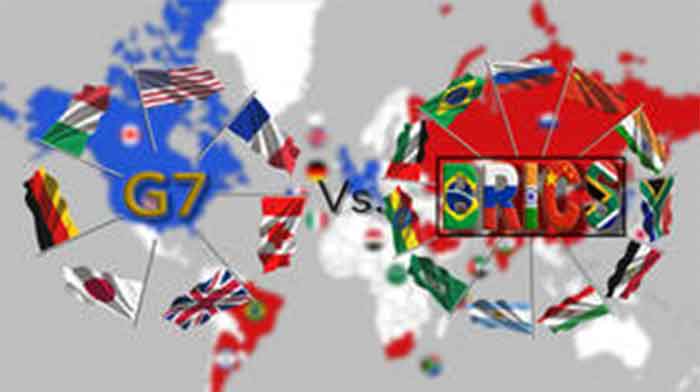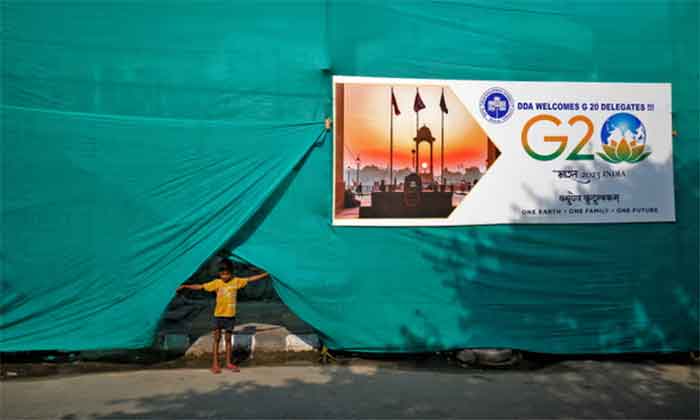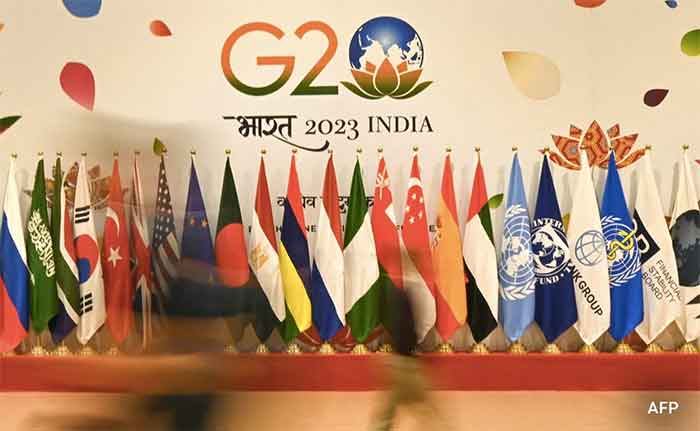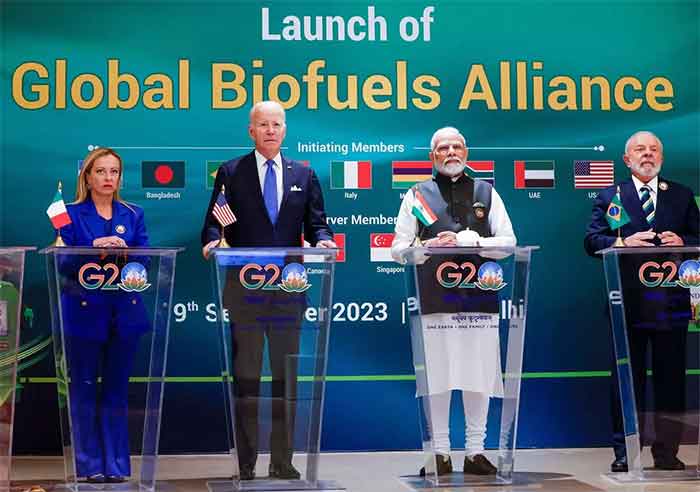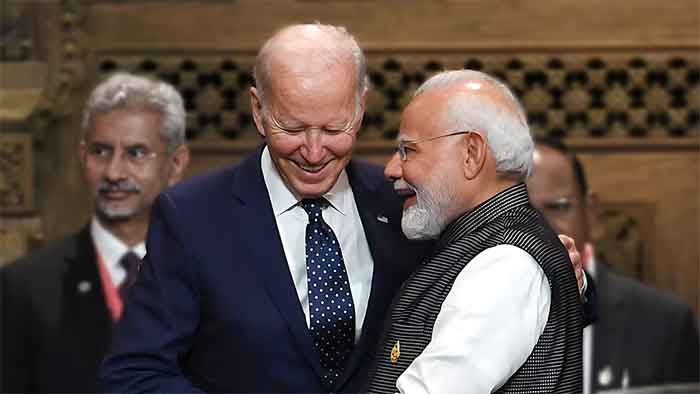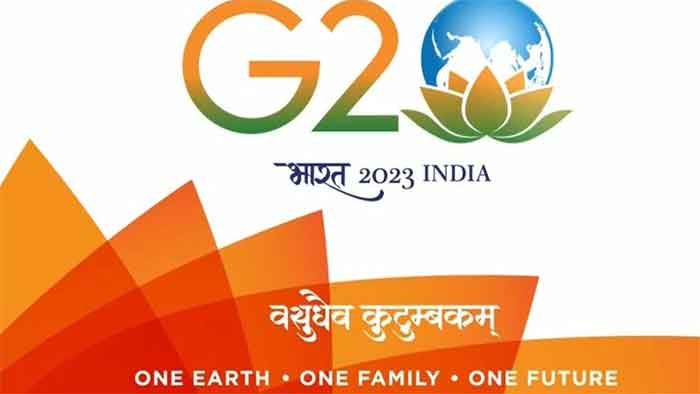
India is all set to host for the first time the Group of Twenty (G20) Summit in the national capital on September 9-10, on the theme ‘One Earth, One Family, One Future’. The city has undergone a significant makeover for this mega event. The whole city has been decked up to give a bridal look.
However, this $120 million “beautification project” of the national capital has, according to a report by the Concerned Citizens Collective, resulted in the displacement of nearly 300,000 people. According to the report, at least 25 shantytowns and multiple night shelters were razed to the ground, rendering thousands of people homeless. In yet another disturbing incident, last month, a summit organised by more than 70 civil society groups and referred to as the “people’s summit on the G20” was disrupted, signifying a shrinking space for democratic dissent.
The G20, the “premier forum for international economic cooperation”, was founded in 1999 against the backdrop of the Asian financial crisis as an informal forum for the Finance Ministers and Central Bank Governors to discuss global economic and financial issues. It was upgraded to the level of Heads of State/Government in the wake of the global economic and financial crisis of 2007. It is the world’s most influential economic multilateral forum that has transcended the North-South divide as well as the “West and the Rest” dichotomy, where both developed and developing countries have equal stature.
The G20 comprises the world’s 19 major economies (Argentina, Australia, Brazil, Canada, China, France, Germany, India, Indonesia, Italy, Japan, the Republic of Korea, Mexico, Russia, Saudi Arabia, South Africa, Türkiye, the United Kingdom, and the United States) and the European Union. The members represent around 85 percent of the global GDP, over 75 percent of international trade, and about two-thirds of the world population.
In the absence of a permanent secretariat, the leadership of the G20 is managed under a “troika” system made up of the immediate past, current president, and next host countries to ensure continuity of the agenda. The troika system ensures that no single country dominates the agenda of the G20. The present troika, for the first time, comprises only developing economies– Indonesia, India, and Brazil- which offers a unique opportunity to look at developments from the perspective of the developing world because so far the developed country members have largely set the tone and tenor of discussions at the G20.
The objective of the G20 is “to create a new international financial structure,” coordinate policy between members to “achieve global economic stability, and sustainable growth” and “promote financial regulations that reduce risks and prevent future financial crises.”It guides the international financial institutions and develops and enforces rules of global economic governance.
The G20 presidency offers India a unique opportunity to showcase its achievements and demonstrate its leadership capabilities. It also provides an opportunity to set the global economic governance agenda and make it inclusive in consultation with other members and in response to developments in the global economy. As host of the G20, India will also influence the negotiation process and direction of the international financial institutions such as the IMF and the World Bank as they work closely with the G20 host and member states for the year and the year after its presidency as part of the Troika.
During the early years, the focus of the G20 has largely been to build consensus on issues related to international financial stability, but of late, it has expanded to include in its agenda a wide array of economic issues such as trade and investment, financial inclusion, energy and climate change, empowering women, global health, agriculture, development policy, digitization, employment policy, and terrorism.
Generally, the G20 Chair defines the priorities of their presidency. India wants its presidency to be “inclusive, ambitious, decisive, and action-oriented”. With that aim, it has decided to focus on six priorities comprising inclusive and resilient growth; progress on the Sustainable Development Goals (SDGs); green development and Lifestyle for the Environment (LiFE); climate finance; technological transformation and public digital infrastructure; reforming multilateral institutions; women-led development; and international peace and harmony. India also wants to give voice to the concerns of the Global South, and with this in mind, it is batting for full G20 membership for the African Union.
Issues related to women and youth, such as financial inclusion, education, and employment, have been under discussion in the concerned official Working Group and Work streams, also form part of India’s Presidency priorities. The priorities discussed and agreed upon during the Ministerial and Working Group Meetings will be adopted in the form of a Leaders’ Declaration at the conclusion of the Summit, which is generally prepared by two working tracks: the finance track and the Sherpa track.
There seems to be consensus among the G20 members on most issues, like strengthening multilateralism, promoting food and energy security, climate change, gender issues, and counter-terrorism, except for the war in Ukraine. While the Western countries insist on including two paragraphs regarding the Ukraine conflict, which were part of the Bali G20 declaration, Russia and China are jointly opposing their inclusion this time, making it difficult for India to build consensus on the G20 leaders’ communiqué.
Russian Foreign Minister Sergei Lavrov has threatened to block the summit’s final declaration unless its position on Ukraine and other issues are reflected in the document. If we fail to adopt a consensus declaration, it would be a great setback for India, which has used this routine rotating presidency into an image-building machine to burnish its global reputation as a leading and powerful voice on the world stage, and to reap political mileage nationally by portraying the G20 summit as a great recognition that India has arrived under the leadership of Prime Minister Modi. India has convened more than 200 G20 meetings in more than two dozen cities across the country in all states, and Union Territories, which is the widest geographical spread in any G20 presidency.
It must be noted that despite great endeavours and maintaining a neutral position on the Ukraine conflict, India has so far not been able to manage a single joint statement in any of the key discussion tracks since India took over the G20 presidency in December 2022, except issuing a non-binding chair’s summary and outcome documents. Elevating the presidency so much and creating hype around it with pomp and celebration has also raised the “expectations for India to deliver some concrete breakthroughs”.
The ability of the G20 to deal with the diverse issues prioritised in its declarations is always questioned in view of the absence of any enforcement mechanism. The reform in global financial architecture, which is generally viewed as loaded against emerging economies, is a major challenge for the summit. Notwithstanding the numerous challenges faced by the G20, bringing together actors with such disparate profiles is in itself a great feat.
Despite India’s enthusiastic participation in the G20, it suffers from abysmal performance in forums such as the Think 20 due to the absence of leading specialised institutions and serious academics with proven track records of inter-disciplinary research on issues of the international monetary system, global financial architecture, global trading system, etc., with the exception of a few in the country. This handicap makes India “a passive rule-taker, not a rule-maker or designer of global economic rules”. If India wants to have anequitable global economics and governance to its satisfaction, it will require developing serious expertise and dedicated institutions, and not mere propaganda machines, as former Reserve Bank governor Raghuram Rajan once said, “those who hold the pen, write the rules.”
Afatb Alam is a professor at Aligarh Muslim University and heads its Strategic and Security Studies Programme.

